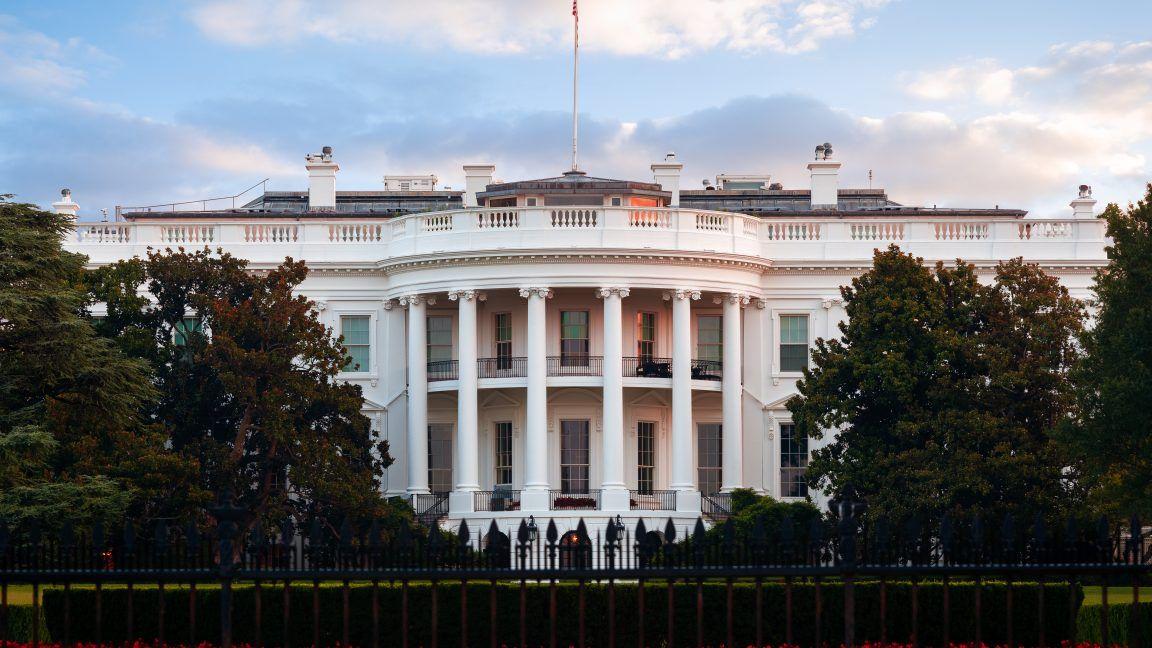FTC Removes AI-Related Blog Posts from Lina Khan Era
3 Sources
3 Sources
[1]
FTC removes Lina Khan-era posts about AI risks and open source | TechCrunch
The Federal Trade Commission has removed three blog posts from the Lina Khan-era that addressed open-source AI and risks of AI to consumers, according to a Wired report. One post, titled "On Open-Weights Foundation Models," was published July 10, 2024. Another, titled "Consumers Are Voicing Concerns About AI," came out in October 2023. A third, authored by Khan's staff, was published on January 3, 2025 with the title "AI and the Risk of Consumer Harm." That post noted the FTC was "taking note of AI's potential for real-world instances of harm - from incentivizing commercial surveillance to enabling fraud and impersonation to perpetuating illegal discrimination." TechCrunch has reached out to the FTC to learn why the posts were taken down. Khan declined to comment. These removals are part of a broader pattern under the Trump administration, which began issuing executive orders to direct federal agencies to remove or modify substantial amounts of government content. After his inauguration, Trump also installed a new head of the FTC and removed several FTC commissioners, installing leadership that focused less on Khan's aggressive antitrust agenda and more on deregulation for Big Tech. In September, new FTC Chair Andrew Ferguson submitted recommendations for deleting or revising anticompetitive regulations across the entire federal government. The blog posts most recently removed by the FTC, which focused on consumer harm, don't seem to align with the Trump administration's AI Action Plan. That plan has reduced its focus on safety and guardrails, instead favoring fast growth and competition with China. However, the Trump administration has been vocal about backing open-source initiatives. Former FTC public affairs director Douglas Farrar told TechCrunch: "I was shocked to see the Andrew Ferguson led FTC be so out of line with the Trump White House on this signal to the market." This is not the first time this administration's FTC has removed content. In March, Wired reported that the FTC removed around 300 posts related to AI, consumer protection, and the agency's lawsuits against tech companies like Amazon and Microsoft. While hundreds of blog posts from Khan's tenure and earlier remain on the agency's Office of Technology Blog, Ferguson's FTC has yet to publish any posts to the site, despite the fast pace of the AI race, which has resulted in several business mergers and acquisitions -- including acqui-hires -- that could be seen as anticompetitive. The FTC blog culling follows the Trump administration's removal or modification of thousands of government web pages and datasets, particularly content related to diversity; equity, and inclusion; gender identity; public health; and environmental policy. For example, the Centers for Disease Control and Prevention has removed data on topics ranging from chronic medical conditions to HIV/AIDS. The Justice Department has removed studies on hate crimes, and the National Oceanic and Atmospheric Administration has taken down the congressionally mandated National Climate Assessment reports. The removal of content - including the blog posts from the FTC - could violate the Federal Records Act, which requires federal agencies to preserve records that properly document government activities, and the Open Government Data Act, which requires agencies to publish their data as "open data" by default. The Biden administration's FTC leadership placed warning labels on content published during previous administrations that it disagreed with, according to Wired.
[2]
The FTC Is Disappearing Blog Posts About AI Published During Lina Khan's Tenure
In late July 2024, Lina Khan, then the chair of the US Federal Trade Commission, gave a speech at an event hosted by the San Francisco startup accelerator Y Combinator in which she positioned herself as an advocate for open source artificial intelligence. The event took place as California lawmakers were considering a landmark bill called SB 1047 that would have imposed new testing and safety requirements on AI companies. Critics of the legislation, which was later vetoed by California governor Gavin Newsom, argued it would hamper the development and release of open source AI models. Khan called for a less restrictive approach and said that, with open models available to them, "smaller players can bring their ideas to market." In the days leading up to the event, Khan's staff published a blog on the agency's website emphasizing similar talking points. The piece noted that "open source" had been used to describe AI models with a variety of different characteristics. The authors instead suggested adopting the term "open-weight," meaning a model that has its training weights released publicly, allowing anyone to inspect, modify, or reuse it. The Trump administration has since removed that blog post, two sources familiar with the matter tell WIRED. The Internet Archive's Wayback Machine shows that the July 10, 2024, FTC blog titled "On Open-Weights Foundation Models" was redirected on September 1 of this year to a landing page for the FTC's Office of Technology. Another post from October 2023 titled "Consumers Are Voicing Concerns About AI," authored by two FTC technologists, now similarly redirects back to the agency's Office of Technology landing page. According to the Wayback Machine, the redirect occurred in late August of this year. A third FTC post about AI that was authored by Khan's staff and published on January 3, 2025, titled "AI and the Risk of Consumer Harm," now leads to an error screen that says "Page not found." According to the Wayback Machine, that blog post was still live on the FTC's website as of August 12, but by August 15 it had been removed from the internet. In the original post, Khan's staff had written that the agency was "increasingly taking note of AI's potential for real-world instances of harm -- from incentivizing commercial surveillance to enabling fraud and impersonation to perpetuating illegal discrimination." It's not clear why the blog posts were removed from the internet. An FTC spokesperson did not respond to a request for comment. Khan, through a spokesperson, declined to comment.
[3]
FTC Disappears Lina Khan's Thoughts on AI
Despite Vice President JD Vance and other "Khanservatives" among Republican ranks offering some praise for how Lina Khan ran the Federal Trade Commission during her time as agency head, her positions are slowly being removed from the agencyâ€"both its operating philosophy and it's blog. According to Wired, at least three posts on AI-related topics on the FTC website authored by Khan's staff have been removed in recent months. According to the report, a blog post titled "On Open-Weights Foundation Models,†in which Khan's team made the case that AI models should be open source with the ability for anyone to publicly review its training weights, was removed sometime in September. Another post, credited to FTC technologists working under Khan, was titled “Consumers Are Voicing Concerns About AI†and tackled multiple potential harms from AI implimentation that could affect consumers. That and a third post, titled "AI and the Risk of Consumer Harm,†were removed sometime in August. A reasonable assumption might be that the Trump administration simply no longer cares about these matters, or at least doesn't want its regulatory body to offer anything resembling resistance to tech firms that would like free reign to run their models as they wish. It is a bit odd, though, considering the Trump administration's AI Action Plan announced earlier this year included a section dedicated to encouraging companies to open-source their models and echoed the Khan-era FTC's language of "open weights." Still, the administration clearly has a more hands-off approach to handling these companies, and Republicans continue to attempt to create loopholes and exemptions that would let AI firms test their models and products without scrutiny of regulatory bodies. Instead of concerns about the implications of the technology and the sector as a whole, the administation seems more interested in picking fights with specific companies, like AI Czar David Sacks' current crusade against Anthropic. It's not the first case of the Trump administration's FTC wiping out prior positions on AI. In March of this year, it deleted more than 300 posts from its website, most authored during Khan's leadership, that were critical of big tech firms and AI companies. During that purge, Wired reported that the removal of such posts without any effort to preserve them could be a violation of the Federal Records Act and the Open Government Data Act. Gizmodo reached out to the FTC for comment, but only received an automated response from an agency spokesperson: “I am out of the office due to the government shutdown. I am unable to respond to your e-mail (or voicemail) until the government is funded, resumes operation, and I return to the office.†A spokesperson for Lina Khan said that she has no comment at this time.
Share
Share
Copy Link
The Federal Trade Commission has deleted several blog posts about AI risks and open-source models published during Lina Khan's tenure. This move aligns with the Trump administration's broader pattern of removing government content on various topics.
FTC Removes AI-Related Blog Posts
The Federal Trade Commission (FTC) has recently removed several blog posts related to artificial intelligence (AI) that were published during Lina Khan's tenure as the agency's chair. This action has raised concerns about the preservation of government records and the shifting focus of the FTC under the Trump administration
1
2
.
Source: Wired
Deleted Content
Three specific blog posts have been identified as removed:
- "On Open-Weights Foundation Models" (July 10, 2024)
- "Consumers Are Voicing Concerns About AI" (October 2023)
- "AI and the Risk of Consumer Harm" (January 3, 2025)
These posts addressed topics such as open-source AI, consumer concerns, and potential risks associated with AI technologies
1
2
. The removals were discovered through the Internet Archive's Wayback Machine, which showed that the redirects and deletions occurred in August and September of this year2
.Broader Pattern of Content Removal
This recent action is part of a larger trend observed under the Trump administration. Since taking office, the administration has been issuing executive orders directing federal agencies to remove or modify substantial amounts of government content
1
. This pattern extends beyond the FTC, affecting various agencies such as:- Centers for Disease Control and Prevention: Removal of data on chronic medical conditions and HIV/AIDS
- Department of Justice: Removal of studies on hate crimes
- National Oceanic and Atmospheric Administration: Removal of National Climate Assessment reports
1
Potential Legal Implications
The removal of these blog posts and other government content may have legal ramifications. Experts suggest that these actions could violate:
- The Federal Records Act: Requires federal agencies to preserve records documenting government activities
- The Open Government Data Act: Mandates agencies to publish their data as "open data" by default
1
Related Stories
Shift in FTC Focus
The removal of these AI-related posts appears to align with the Trump administration's AI Action Plan, which emphasizes fast growth and competition with China over safety and guardrails
1
. This shift is further evidenced by:- Installation of new FTC leadership, including Chair Andrew Ferguson
- Reduced focus on Khan's aggressive antitrust agenda
- Increased emphasis on deregulation for Big Tech
1
3

Source: Gizmodo
Reactions and Concerns
The removal of these posts has sparked reactions from various quarters:
- Former FTC public affairs director Douglas Farrar expressed shock at the FTC's actions, noting their misalignment with the Trump White House's stance
1
. - Critics argue that the deletions could hamper transparency and public understanding of AI-related issues
2
3
. - The Biden administration's FTC leadership had previously placed warning labels on content from previous administrations that it disagreed with, rather than removing it entirely
1
.

Source: TechCrunch
As the AI landscape continues to evolve rapidly, the FTC's approach to regulating and commenting on AI technologies remains a topic of significant interest and debate within the tech industry and policy circles.
References
Summarized by
Navi
[3]
Related Stories
Anthropic Shifts AI Policy Stance: Removes Biden-Era Commitments, Proposes New Recommendations
06 Mar 2025•Policy and Regulation

Open-Source AI Models Gain Momentum, Challenging Industry Giants
26 Jul 2024

Biden Administration's Final Push on Tech Regulation: AI and Antitrust in Focus
11 Dec 2024•Policy and Regulation

Recent Highlights
1
ByteDance Faces Hollywood Backlash After Seedance 2.0 Creates Unauthorized Celebrity Deepfakes
Technology

2
Microsoft AI chief predicts artificial intelligence will automate most white-collar jobs in 18 months
Business and Economy

3
Google reports state-sponsored hackers exploit Gemini AI across all stages of cyberattacks
Technology





